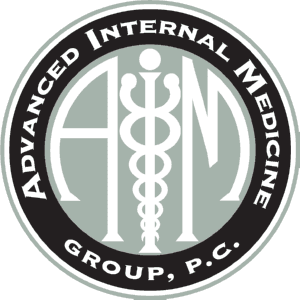Fevers are a common ailment that affects individuals of all ages. They are the body’s natural response to infection or illness, acting as a defense mechanism to fight off pathogens. However, the implications and management of fevers vary significantly across different age groups. Understanding when to seek medical attention can be crucial in ensuring proper care and avoiding complications. This blog from AIM Group in NYC will explore the guidelines for managing fevers in newborns and children, adults, and seniors.
Newborns (0-3 months)
Fevers in newborns are particularly concerning and warrant immediate medical attention. A fever is defined as a rectal temperature of 100.4°F (38°C) or higher. Newborns have immature immune systems, making them more vulnerable to severe infections. Here’s when to seek medical attention:
- Fever of 100.4°F (38°C) or higher: Any fever in a newborn should be evaluated by a healthcare provider immediately.
- Behavioral changes: If the baby is lethargic, excessively irritable, or difficult to wake.
- Feeding difficulties: Refusal to feed or poor feeding can indicate a serious issue.
- Signs of dehydration: Fewer wet diapers, dry mouth, or sunken soft spot on the head.
Infants and Toddlers (3 months – 2 years)
In this age group, fevers are more common and often less alarming but still require careful monitoring:
- Fever of 102°F (38.9°C) or higher: Seek medical advice, especially if it persists for more than 24 hours.
- Behavioral changes: Extreme irritability, persistent crying, or lethargy.
- Symptoms of severe illness: Difficulty breathing, rash, persistent vomiting or diarrhea, or seizures.
Children (2 years and older)
Older children can often tolerate fevers better, but medical attention is needed in certain circumstances:
- Fever of 104°F (40°C) or higher: Immediate medical attention is recommended.
- Persistent fever: If a fever lasts more than three days or is recurrent.
- Severe symptoms: Difficulty breathing, severe headache, persistent vomiting, rash, or confusion.
- Underlying health conditions: If the child has a chronic illness, weakened immune system, or other significant health concerns.
Adults
In adults, fevers are usually less alarming but can still indicate serious health issues. Here’s when to seek medical attention:
- Fever of 103°F (39.4°C) or higher: This high temperature warrants a medical evaluation.
- Prolonged fever: If a fever lasts more than three days without improvement.
- Severe symptoms: Shortness of breath, chest pain, severe headache, stiff neck, rash, confusion, persistent vomiting, or abdominal pain.
- Compromised immune system: Individuals with chronic illnesses, such as diabetes, heart disease, or those undergoing chemotherapy, should seek medical advice if they develop a fever.
Seniors (65 years and older)
Seniors are more vulnerable to complications from fevers due to age-related changes in their immune system and the presence of chronic health conditions. Specific considerations include:
- Fever of 100.4°F (38°C) or higher: In seniors, even a mild fever can be significant and should be evaluated.
- Behavioral changes: Confusion, disorientation, or delirium, which can be signs of serious infection or other underlying conditions.
- Severe symptoms: Shortness of breath, chest pain, persistent cough, severe headache, or abdominal pain.
- Underlying health conditions: Seniors with chronic illnesses or weakened immune systems should seek prompt medical attention if they develop a fever.
General Guidelines for Managing Fevers
At-Home Care
For mild fevers, certain at-home care measures can help alleviate symptoms:
- Hydration: Drink plenty of fluids to prevent dehydration.
- Rest: Adequate rest is essential for recovery.
- Medications: Over-the-counter medications like acetaminophen or ibuprofen can help reduce fever and alleviate discomfort. Always follow dosing instructions and consult a healthcare provider for children and seniors.
- Cool compresses: Applying a cool, damp cloth to the forehead can provide relief.
When to Seek Emergency Care
Immediate medical attention is required if any of the following occurs:
- Seizures: Fever-induced seizures, especially in children.
- Difficulty breathing: Severe respiratory distress or inability to breathe comfortably.
- Unresponsiveness: Sudden lethargy, unresponsiveness, or difficulty waking up.
- Severe pain: Intense pain in the chest, abdomen, or head.
- Persistent vomiting or diarrhea: Leading to dehydration.
Understanding when to seek medical attention for a fever is crucial across all age groups. While mild fevers can often be managed at home, high or persistent fevers, severe symptoms, or the presence of underlying health conditions necessitate prompt medical evaluation. By recognizing the signs and knowing the appropriate actions to take, we can ensure better health outcomes and timely care for ourselves and our loved ones. Always consult a healthcare provider if you are unsure about the severity of a fever or the appropriate course of action.
AIM Group Offers Primary Care & House Calls In East Hills, NY
At Advanced Internal Medical Group in East Hills, NY we have 40 years of experience providing care with over 20 services in primary care, house call appointments, and more. To learn more about any of our services, call 516-352-8100 to speak with one of our team members.

